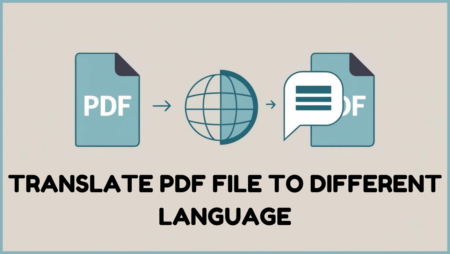Behavior on Social Networks
Although the Internet is full of information that can help in everyday life, it is also a source of many dangers. We bring tips on how to enjoy its benefits. The Internet is a significant source of useful information, but many dangerous and illegal things are arranged and exchanged daily. For example, it is possible to publish other people’s photos and personal data on it at any time of the day and to sign someone else’s name with the evil intention.
Social networks are intended for meeting new people and meeting acquaintances, but due to the possibility of publishing various multimedia content and data with other members of the network, there are also various dangers. As many people post personal information and intimate records on their own social media profiles, it is important to assess what kind of content and information you can safely post on them. It is important to study the security rules of certain social networks so that you do not get into a situation where, for example, your photos are seen by anyone, and maybe even by people you do not want to see them. You should be aware of the possibility of false representation on social media at all times.
Security & Protection of Usernames & Passwords
Depending on the social network, the email address you use, or any site that requires you to use a username and password, it is important that they are well chosen to prevent someone else from using your username. Choosing a quality software (VPN, Password Manager, etc.) and choosing a secure and strong password is sometimes not easy, so we bring you tips on how to choose the best one.
Easy password memory – Make sure your password is something you can remember. It’s best to choose something specific to you so you always have that in mind, but again not so conspicuously that anyone can guess it. Choose a long-phrase or phrase that you remember and create a password from the whole phrase or only from its first letters.

Ease of Password – Avoid simple passwords like 123456, abcdefg, and the like or any word contained in one of the “password dictionaries.” Namely, there are word lists that hackers know are often used as passwords like various terms from astrology, biology, cartoons, sports, movies, places, science fiction, and the like.
Use the same password – Do not use the same password for all your existing accounts. There is a well-known example of fake data sharing services that are set up only to hack into users’ accounts. Similar services require users to register in the hope that they will enter the same password, which can then be used to access their data.
Writing a password – Passwords are usually very short and are usually at least six characters long. If you’re not sure you’ll remember them all, after all, write them down somewhere where no one else has access. A computer record, however, is not the best choice, especially because of the possibility of its technical failure. It is best to write down the password in a notebook that you keep in place along with your more important documents.
Keyboard shortcuts – Do not use keyboard shortcuts such as asqw12, yxasqw, etc., or some common passwords with the “shift” key, such as the password “!” # $% & / “Which may work securely, but is a character” shift + 1234567 “, which most dictionaries used to crack passwords contain.

Font combination – For systems that recognize the difference between uppercase and lowercase letters, use both font sizes to create your password. Even if you choose a simple term for your password, the variety of character sizes will make it much harder for someone who wants to log in to your accounts to access it.
Custom algorithm – Use your own “algorithm” to create passwords. For example, take the first four characters of the name of the page you are registering on and add the last four digits of your friend’s phone number. So the registration password for our portal could be “pame3343”. You can further develop this algorithm by selecting the next or previous letter in the alphabet from each letter, combining uppercase and lowercase letters, etc. The more steps in creating the algorithm, the more secure your password is. and differences is also memorable because it is enough to remember the way you create passwords to know a large number of them by heart.
The Importance of Password Managers & Their Role
Encouraging information literacy, computer, and communication technology has become a part of everyday life. Due to the various dangers offered by electronic media, it is important to timely identify and prevent disturbing and unpleasant events that they offer, it is necessary to use password managers to easily overcome the problem. It is important to teach everyone about taking responsibility for their behavior and about the consequences of certain actions over the Internet, as well as about security rules to protect their independence, interests, and activities.

A password manager, like Keeper Password Manager, is a great way to avoid forgetting your password. With this password manager, you only need to remember one strong password. When your account is unlocked, you have access to all the other passwords you have saved within your account, making all your other locations, services, and devices easy to access. Different helpful features of Keeper security tool you can find out reading this review of it. There are three basic types of password managers – password management software, password management services, and password management applications for smartphones such as iPhones and Android phones.
Some manager manufacturers offer a combination of desktop, online, and smartphone applications that synchronize information. Constant availability is an obvious advantage of online password managers. With online network management, you can access your passwords wherever they happen to have an Internet connection. Having all your passwords and other login information available in your pocket at all times is a big plus. Definitely a thing to think about. Use the app and stay safe online.





